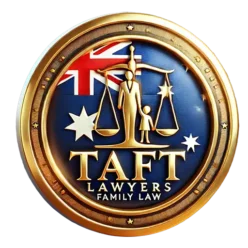Family lawyers in Australia provide crucial legal guidance and preventive advice to individuals facing or at risk of domestic violence. Given the severe consequences of domestic abuse, both legally and personally, lawyers emphasize the importance of recognizing early red flags, understanding protective legal measures, and taking necessary precautions before and during a relationship.
- Understanding Domestic Violence in Australia
- What Are Red Flags?
- What Are Main Pre-Marriage Precautions?
- What Legal Protections Are Available?
- Precautions for Victims
- Protecting Kids from Domestic Violence
- Steps to Leave Abusive Relationship
- Are There Legal Safeguards against Financial Abuse?
- What Can I Do as a Migrant?
- Emotional Recovery and Legal Support
- Taking Action against Domestic Violence
Understanding Domestic Violence in Australia
Domestic violence is not limited to physical abuse; it encompasses emotional, financial, sexual, psychological, and coercive control. The Family Law Act 1975 defines family violence as any behavior that causes fear or harm to a partner, child, or other family members. Recognizing its broad scope helps individuals identify abusive behaviors early.
Red Flags of Domestic Violence
Family lawyers advise individuals to watch for early warning signs in a relationship. Some common red flags include:
- Controlling behavior – Monitoring your whereabouts, isolating you from friends/family, or restricting finances.
- Excessive jealousy or possessiveness – Constant accusations, checking your phone, or preventing interactions with others.
- Verbal and emotional abuse – Frequent belittling, insults, threats, or manipulation.
- Unpredictable anger or aggression – Explosive tempers, violent outbursts, or breaking objects.
- Gaslighting – Making you doubt your memory, experiences, or reality.
- Coercion and threats – Forcing you into actions against your will, including financial or sexual coercion.
Identifying these behaviors early can prevent escalation and allow individuals to seek legal or protective measures before abuse worsens.
Pre-Marriage Precautions and Considerations
Before marriage, family lawyers highly recommend:
- Observing partner behavior in different situations – Pay attention to how they react to stress, disagreements, and family matters.
- Having honest conversations about finances – Financial control can be a tool for abuse, so ensuring financial independence is important.
- Understanding legal rights and protective orders – Knowing about intervention orders (IVOs) or apprehended domestic violence orders (ADVOs) in Australia is crucial.
- Discussing future goals, beliefs, and values – Differences in expectations regarding family roles, children, and finances can lead to conflicts.
- Checking for past domestic violence history – If your partner has had prior legal issues regarding violence, it is a major red flag.
What Legal Protections Are Available in Australia?
If someone is experiencing domestic violence, there are legal protections available, such as:
- Intervention Orders (IVOs) or Apprehended Domestic Violence Orders (ADVOs) – These are court-issued orders restricting the abuser’s contact or behavior.
- Emergency Protective Orders – If in immediate danger, police can issue a temporary protection order.
- Family Court Orders – In cases involving children, the Family Court can impose orders to protect the victim and children from the abuser.
- Criminal Charges – Physical violence, stalking, or coercion can lead to criminal charges under Australian law.
Legal intervention can help survivors secure safety and independence from abusive situations.
Precautions for Victims in Abusive Relationships
If someone is already in an abusive relationship, lawyers advise taking the following precautions:
- Develop a safety plan – Identify safe places, contacts, and escape routes in case of danger.
- Document evidence – Keep records of abusive incidents, including text messages, emails, and medical reports.
- Seek support from domestic violence services – Contact organizations like 1800RESPECT or Women’s Legal Service.
- Consider legal action early – The sooner legal measures are taken, the easier it is to escape escalating violence.
- Financial independence – Having a secret bank account or financial backup can make leaving safer.
Protecting Children from Domestic Violence
Australian law prioritizes the safety of children. Exposure to domestic violence, even indirectly, is considered child abuse. Precautions for parents in such situations include:
- Seeking sole parental responsibility through the Family Court if the abusive partner poses a risk.
- Getting a child protection order to prevent an abuser from contacting or harming children.
- Documenting all instances of abuse to present to child welfare authorities or the court.
The court may deny custody or visitation rights to an abusive parent if it is deemed unsafe for the child.
Steps to Take Before Leaving an Abusive Relationship
Leaving an abusive relationship is often the most dangerous time for victims. Lawyers recommend:
- Notifying a trusted friend or organization about your plan.
- Securing important documents like passports, ID, and financial statements.
- Arranging a safe place to stay, such as a domestic violence shelter.
- Changing passwords and securing personal information to prevent tracking.
- Seeking immediate legal protection through the police or courts.
Planning ahead ensures a safer and more strategic escape from the relationship.
Legal Safeguards Against Financial Abuse?
Financial abuse is a major form of control in domestic violence cases. Lawyers suggest:
- Keeping financial independence – Avoid merging all assets with a partner.
- Opening a private savings account in case of emergency.
- Monitoring joint accounts for unusual activity.
- Understanding property and asset division laws before marriage.
If financial abuse has already occurred, victims can apply for emergency financial assistance through government programs or legal aid.
What Can Migratns Do As Non-Citizens
For migrants in abusive relationships, visa status can complicate matters. In Australia:
- Partner visa applicants facing abuse can still apply for a visa independently under the family violence provisions.
- Domestic violence does not mean automatic deportation – victims can seek legal support to remain in Australia.
- A lawyer can assist in filing for a permanent visa based on safety concerns.
Immigrant victims should seek legal counsel immediately to understand their rights.
Emotional Recovery and Legal Support
Recovering from domestic violence involves both legal and emotional support. Lawyers encourage victims to:
- Engage with therapy or counseling to address trauma.
- Join support groups for domestic violence survivors.
- Consider legal aid services if financial constraints exist.
- Rebuild financial and personal independence step by step.
The legal system, along with community support, helps victims regain control over their lives.
Taking Action Against Domestic Violence
Domestic violence is a serious issue in Australia, but legal protections and support services exist to help victims escape and rebuild their lives. Family lawyers emphasize the importance of early warning signs, legal precautions, and strategic exit plans.
If you or someone you know is experiencing domestic violence, seek help immediately. Legal intervention can provide safety and a path toward a better future.

